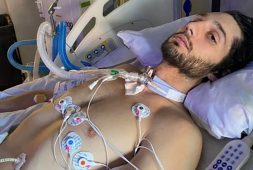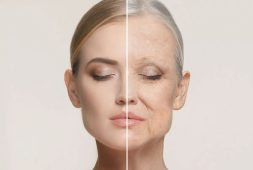
Autism spectrum disorder (ASD) is defined by the National Institute of Mental Health as ‘a developmental disorder that affects communication and behavior. Although autism can be diagnosed at any age, it is said to be a “development disorder” because symptoms generally appear in the first two years of life.’
In recent years, research has found a deeper understanding of autism that goes beyond the impact it has on sensory processing, communication, and social interactions.
The Centers for Disease Control and Prevention (CDC) reported on March 26, 2021 that in every 54 8-year old children, one has been diagnosed with autism. And this number has increased from the former number of one in every 59 8-year old children in the previous estimate.
Because autism in on the rise, the scientific community has been invested in figuring out more and more factors that are possibly linked to autism.
In fact, some scientists believe that genetics can cause autism, while others surmise that it’s due to environmental factorssuch as toxins exposure. But others still hypothesize that it’s because of intestinal microbiome imbalances that cause this neurotype.
The latest research about autism examines all these factors like genetic variants, neurological factors, as well as gut biome imbalances, in order to better understand how they may possibly contribute to ASD.
Here, we examine what the latest scientific discoveries about autism that scientists and researchers have found recently.
Looking at Contributing Factors
The CDC funded a multi-year study that is still underway in order to find out more about the possible factors that contribute or that are linked to autism.
The study, otherwise known as Study to Explore Early Development (SEED), is composed of six different study site within the United States. These sites are all part of the Autism and Development Disabilities Research and Epidemiology network which focuses on children between the ages of 2 to 5 years in age.
One main goal of the study is to figure out which health conditions happen in children who are autistic and neurotypical, as well as what aspects are linked to possibility of children developing ASD.
Another intention of the study is to discern the behavioral and physical characteristics of children diagnosed with autism, to children with other types of developmental conditions, to those that have no developmental conditions.
The current research has already produced a number of published studies since it first began. And with the latest one, an association between ASD and a mother’s exposure to ozone pollution while in her third trimester of pregnancy was discovered.
What the study found was that when infants are exposed to another type of air pollution, known as particulate matter, when they are in their first year of life, also increases their likelihood of getting a positive ASD diagnosis later on. To see the research, check their published study in the journal Epidemiology.
Ongoing Research On Genetics
When it comes to other pathways on autism research, the studies look into gene variants and the potential roles they play on ASD development.
A recent study looked at DNA of over 35,584 people throughout the world, including 11,986 individuals with autism. The research pinpointed at least 102 gene variants that were linked to an increased possibility of children developing ASD.
The research group also found that at least 53 of the identified genes were associated more with autism than any of the other developmental conditions. Some of the gene variants that they managed to identify were those in the cerebral cortex, which is the part of the brain that is responsible for one’s complex behaviors.
These particular variants could possibly play a role on the way brain neurons connect, as well as possibly turning on and off genes, factors that could possibly play a part when it comes to autism.
Looking Into Neurological Factors
There has been some biological research that has brought up fascinating information on how certain types of cell malfunctions can also be linked to ASD.
As a matter of fact, scientists from the Lieber Institute for Brain Development in Baltimore, MD, did an experiment on mice that found that when there is a decrease in the strength of myelin, which works as the protective sheath that surround the brain’s nerve cells with a syndromic type of ASD.
The study, which was published in the journal Nature Neuroscience, explained that there was a ‘gene variant-based malfunction in oligodendrocytes,’ which are the cells responsible for making myelin.
When this type of malfunction occurs, it can lead to a lack of myelin production in the nerve cells, thus damaging and disrupting the nerve communication within the brain, otherwise impairing brain development.
Again, using mice as the models, the research team is investigating treatments that may increase the myelination in the brain in order to see whether it can improve the ASD-associated behaviors that would normally be difficult.
Looking Into Autism and the Gut Microbiome
As for the gut or gastrointestinal tract, other the microbiome, its’ also another area that researchers are looking into when it comes to autism contributing factors.
A number of studies have been done establishing the link between ASD and the imbalances within the gut biome. Some studies have found that increasing developments of how managing to balance the populations of gut microbes within the gut can actually help or correct the imbalances, which can then lead to the improvement of negative or unwanted symptoms that are associated with autism.
Back in 2017, a study was published in the Microbiome journal, which looked into whether microbiota transfer therapy(MTT) done in children with autism help improve the gut microbiota diversity and other symptoms linked to autism. What researchers discovered was that after the MTT treatment, the participants had more bacterial diversity within their gut.
Other observations in the research participants that were treated with MTT had ‘a decrease in gastrointestinal (GI) symptoms, as well as improved language, social interaction, and behavioral symptoms.’
A 2-year follow up study showed that participants who got MTT treatment also experienced less GI issues, as well as an improvement in their autism-linked symptoms.
Another study also found that there is a possible connection between gut microbiome and genes. The study, which was published in early April, found that the lack of CNTNAP2 in mice, a gene that’s linked to autism, also had a noteworthy amount of microbe populations within their intestines. The mice also showed certain social behaviors that are similar to those in people with autism.
When the mice were given Lactobacillus reuteri as treatment, which is a type of common bacterium normally found missing from their microbiome, as well as common strain of gut bacteria in wild-type mice, there was a noticeable positive change in their social behaviors.
A New Type of Diagnostics and Testing
One thing that makes autism even more challenging is how difficult it can be to diagnose, especially in young children. But research has found that early diagnosis and early treatment interventions normally lead to a better and more positive long-term outcome for those individuals diagnosed with autism.
This is why the scientific community continues to work towards finding more creative methods of diagnostics in order to help health care professionals detect autism earlier on.
One such diagnostic tool could be hearing tests. Harvard Medical School in Boston, MA and the University of Miamihave a group of researchers that looked at data from auditory brainstem response (ABR) hearing tests that were given routinely to infants soon after they were born in Florida.
The study group matched the data they found to the Florida Department of Education records in those same kids that were given a development condition diagnosis later on. What the results showed was that infants that got an ASD diagnosis later on also had slower brain responses to the sounds they heard during their ABR tests done at their birth. This study was published in the Autism Research journal.
What the research group hopes to do is conduct more studies to help them see if ABR testing could actually help them determine autism from an early age.
Moreover, there have been more advancements with research in biomarkers that show ways of recognizing autism. Researchers took data from the Children’s Autism Metabolome Project (CAMP) and found that ‘metabotypes associated with autism in 357 children aged 18-48 months.’
After the research group optimized these findings and those previously found metabotypes into screening tests, they found autism in a 53% of the CAMP study participants.
Elizabeth L. R. Donley of Stemina Biomarker Discovery in Madison, WI, and study author explained, “Our approach to understanding the biology of autism is going to revolutionize how we diagnose and treat autism. Autism is diagnosed through behavioral assessment, but there are underlying biological reasons for the disruptions in neurodevelopment that result in the behaviors of autism.”
She also explained that the differences found by her team in the metabolism of children with autism helped give more knowledge into better and more specific treatment options.
Donley shared, “The first metabolic subtypes we published from our clinical study, the [CAMP], may be addressable with a supplement. The biology of other subtypes may be targets for drugs or new indications for existing drugs.”
“[O]ur approach identifies where dysregulation is occurring in the biology of the child so that therapies that address this biology can be prioritized rather than just trying anything and everything with no precision,” she added.
With this new research, the team has ‘already validated the first three of five planned panels that can identify subtypes of metabolism associated with autism.’ They also believe that they can validate the other remaining panels this year in order to start ‘the first clinical study of a paired therapy.’
Due to the persistent rise of autism, scientists also hope to continue finding out other factors that are associated with this type of disorder. The idea is that when they identify these factors, they can look into developing early detection screening tests and more targeted treatments that best deal with the symptoms and health conditions that are associated with autism.
Meanwhile, the nonprofit advocacy organization, Autistic Self Advocacy Network (ASAN), which is run by autistic people, also warn against the idea that autism is something to be “cured’ or “treated.”
ASAN explains that “[m]ost self-advocates agree that autism does not need to be cured. Instead of wasting time and money on something that is not possible and that autistic people do not want, we should focus on supporting autistic people to live good lives.”
They add, “The most important thing is that any therapy should help autistic people get what we want and need, not what other people think we need. Good therapies focus on helping us figure out our goals, and work with us to achieve them.”



